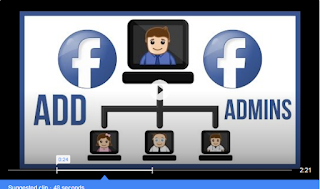Facebook login welcome to Facebook
But advertisers have the power of the purse, which means tech companies might actually be inclined to listen to them. Unilever, which owns popular brands like Dove, Marmite, PG Tips, and Ben & Jerry’s, spent £6.8 billion last year on advertising, behind only Proctor & Gamble. Weed says that the tech giants’ failure to take complaints about the social ramifications of their products seriously means that what might have been been “internal” industry issues between advertisers and companies are now very public ones:
“Consumers don’t care about third party verification. They do care about fraudulent practice, fake news, and Russians influencing the US election. They don’t care about good value for advertisers. But they do care when they see their brands being placed next to ads funding terror, or exploiting children. They don’t care about sophisticated data usage or ad targeting via complex algorithms, but they do care about not seeing the same ad 100 times a day. They don’t care about ad fraud, but they do care about their data being misused and stolen.
Weed joins a growing list of people who are complaining about tech:
Last year, Sean Parker, one of Facebook’s original investors and its first president, said of Facebook, “God only knows what it’s doing to our children’s brains.”
Chamath Palihapitiya, a venture capitalist who was an early employee at Facebook, said in November that the social network was “ripping apart the social fabric of how society works.”
Apple CEO Tim Cook told The Guardian in January that he would not let his nephew on social media.
In January, two giant investors sent a letter to Apple asking the company to address how technology affects its youngest users, suggesting that the company increase funding for research on the subject and change its design to help better parents limit kids’ screen time.
Pediatric and mental health experts called on Facebook last week to abandon Messenger Kids, a service introduced for kids as young as 6.
Unilever, Weed plans to say, will adhere to three principles in deploying its war chest of ad dollars. It will not invest in brands that do not protect children or which create division in society; it will tackle gender stereotypes through what it calls its #UnStereotype campaign, and it will only partner with organizations dedicated to creating “better digital infrastructure.”
But advertisers have the power of the purse, which means tech companies might actually be inclined to listen to them. Unilever, which owns popular brands like Dove, Marmite, PG Tips, and Ben & Jerry’s, spent £6.8 billion last year on advertising, behind only Proctor & Gamble. Weed says that the tech giants’ failure to take complaints about the social ramifications of their products seriously means that what might have been been “internal” industry issues between advertisers and companies are now very public ones:
“Consumers don’t care about third party verification. They do care about fraudulent practice, fake news, and Russians influencing the US election. They don’t care about good value for advertisers. But they do care when they see their brands being placed next to ads funding terror, or exploiting children. They don’t care about sophisticated data usage or ad targeting via complex algorithms, but they do care about not seeing the same ad 100 times a day. They don’t care about ad fraud, but they do care about their data being misused and stolen.
Weed joins a growing list of people who are complaining about tech:
Last year, Sean Parker, one of Facebook’s original investors and its first president, said of Facebook, “God only knows what it’s doing to our children’s brains.”
Chamath Palihapitiya, a venture capitalist who was an early employee at Facebook, said in November that the social network was “ripping apart the social fabric of how society works.”
Apple CEO Tim Cook told The Guardian in January that he would not let his nephew on social media.
In January, two giant investors sent a letter to Apple asking the company to address how technology affects its youngest users, suggesting that the company increase funding for research on the subject and change its design to help better parents limit kids’ screen time.
Pediatric and mental health experts called on Facebook last week to abandon Messenger Kids, a service introduced for kids as young as 6.
Unilever, Weed plans to say, will adhere to three principles in deploying its war chest of ad dollars. It will not invest in brands that do not protect children or which create division in society; it will tackle gender stereotypes through what it calls its #UnStereotype campaign, and it will only partner with organizations dedicated to creating “better digital infrastructure.”
Related Posts:
- How do i suggest a friend to someone on Facebook
- Facebook login Facebook login Go
- Facebook login facebook login Go
- Facebook front Page
- Facebook login home page google English
- This profile is visible to friends Only
- Mail yahoo login In
- Facebook wont let me add Someone
- Facebook latest version download for android Mobil...

0 comments:
Post a Comment
Facebook has greatly reduced the distribution of our stories in our readers' newsfeeds and is instead promoting mainstream media sources. When you share to your friends, however, you greatly help distribute our content. Please take a moment and consider sharing this article with your friends and family. Thank you.